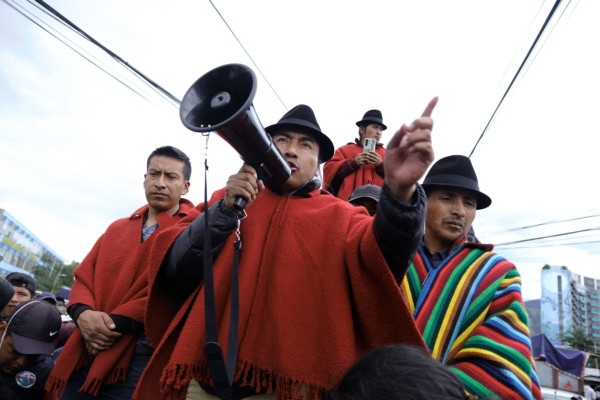-

Haiti deserves respect, not another invasion
Haiti doesn’t need any more intervention from Canada or other members of the “Core Group.” In every instance, these powers have done nothing but strip away the most basic social services in the country while empowering the repressive state forces that target social resistance to poverty and underdevelopment. What Haiti needs is respect for its sovereignty and the demands of its people.
-

Ottawa has given Haitians many good reasons not to like us
Haitians’ are right to be angry at Canada. In the last two decades alone Canada helped destabilize Haiti’s elected government, planned a coup, and participated in an invasion to topple a president. Ottawa also trained and financed a highly repressive police force, enabling a litany of politically motivated arrests and killings.
-

Brazil’s Lula remerges in a very different political world
The challenges facing Lula, and Brazilians in general, are the same ones we all face: how do we prioritize people’s needs over corporate greed, and how do we elevate the rights of human beings, of women, people of colour, Indigenous communities, and the environment, in the face of a rising fascism that deploys organized disinformation so effectively?
-

BRICS: the powerful global alliance
Professor Richard Wolff discusses the powerful economic partnership of Brazil, Russia, India, China and South Africa (BRICS). “They are the engine of the world economy in a way that was once said of Western Europe, North America and Japan. The engine, the powerhouse, the growth mobile, all of that. That’s moved, friends. And it’s moved in large part to the BRICS.”
-

Cuba’s Families Code a bold step forward for LGBTQ+ rights in the hemisphere
As conservatives in North America, but particularly the US, redouble their efforts to restrict women’s and LGBTQ+ rights, we must applaud Cuba’s popular and democratic decision to draft, discuss, and implement their new Families Code, a powerful document that is one of the world’s most progressive laws concerning women’s rights, familial rights, and LGBTQ+ rights.
-

Brazil election: Has Lula already won or will Bolsonaro come up with surprises?
Lula ccurrently leads Bolsonaro by a margin of 15 percent. While many observers consider the election already decided, others are expecting surprises. The question remains whether Bolsonaro will accept defeat at the ballot box. Expectations that Bolsonaro would attempt a coup during a rally on Brazil’s Independence Day on September 7 turned out to be unfounded.
-

Colombian president calls for an end to the war on drugs in historic UN address
On the first day of the United Nations General Assembly, Colombian President Gustavo Petro made his first address to the body. The speech sharply deviated from those of his conservative predecessors. Petro did not shy away from calling out global North countries for their role in the destruction of the environment and in the perpetuation of the War on Drugs.
-

Gustavo Petro’s environmental protection plans face pushback from extractive companies
The progressive Colombian government of Gustavo Petro is drafting legislation that, if enacted, will require mining companies to obtain environmental licenses for mineral exploration. Currently, Colombia only requires environmental licenses for the extraction and production phases of mining. Petro won the Colombian presidential election in a runoff on June 19.
-

Who killed Chile’s progressive new constitution?
Despite recently electing Chile’s most progressive president in the shape of former student protest leader Gabriel Boric, voters in the country have now rejected his most important reform. A plebiscite held on September 4 to replace the constitution imposed during the dictatorship of Augusto Pinochet with a progressive new one led to a solid no vote. This has effectively halted Boric’s agenda for reform.
-

Despite protests, Ecuador’s Guillermo Lasso embraces Canadian mining at the expense of Indigenous peoples
The 2022 national protests in Ecuador were a powerful statement in opposition to the socioeconomic status quo that is favoured by Ecuador’s conservative elite and the Canadian state. While the protestors achieved some important gains, Lasso’s continued embrace of foreign mining investment at the expense of Indigenous peoples may be doomed to incite another uprising.



